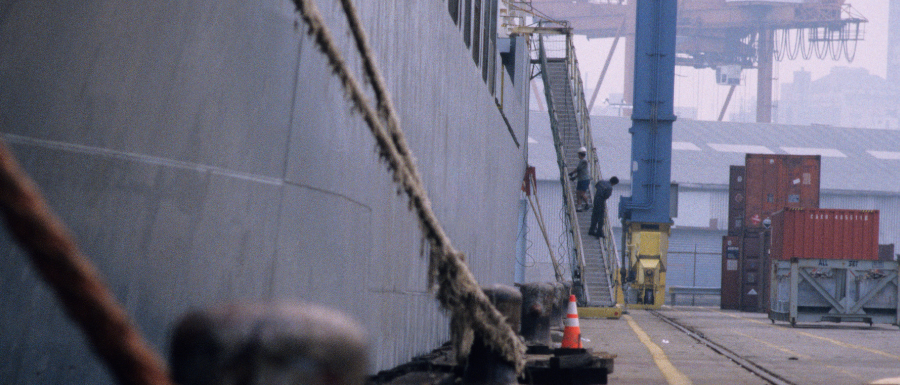What Is a Longshoreman?

Longshoremen, also known as dockworkers, stevedores, or dockers, play an essential role in the maritime industry by loading and unloading cargo from ships at ports. Their work is physically demanding and crucial to the global supply chain. But what exactly does it mean to be a longshoreman, and what are the legal protections if you’re injured on the job? Let’s explore the role of a longshoreman, what it takes to become one, and how Gordon McKernan Injury Attorneys can assist if you’re hurt while working in this vital industry.
What Does a Longshoreman Do?
A longshoreman’s primary job is to load and unload cargo from ships at docks or ports. This may involve:
- Operating cranes, forklifts, and other heavy machinery
- Securing cargo in containers for shipping
- Handling and inspecting shipments
- Ensuring the efficient movement of goods from ship to dock and vice versa
These professionals are essential for the smooth operation of seaports and the global economy. While the rise of containerization has automated some of the manual tasks, longshoremen still play a critical role in handling and securing goods at port terminals, ensuring shipments arrive safely and on time.
How to Become a Longshoreman in Louisiana
Becoming a longshoreman requires several steps, but it doesn’t demand a college degree. Here’s how to pursue a career in this field:
- Obtain a Transportation Worker Identification Credential (TWIC) Card – This card is required to work on a dock. Schedule an appointment with the Transportation Security Administration (TSA), and bring your driver’s license and a fee.
- Join a Union (ILWU or Other) – Unions like the International Longshore and Warehouse Union (ILWU) help longshoremen get better work opportunities and benefits. Depending on the port, it may take years to be accepted.
- Gain Experience – Some start as casual workers, gaining experience and improving their chances of securing regular shifts. The more experience you have, the higher your chances of becoming a full-time member.
- Become a Full Union Member – As a full member, you’ll receive health benefits, paid vacations, sick days, and more, along with more stable shifts.
While becoming a maritime laborer or dockworker requires hard work and patience, the job provides rewarding compensation, especially as you gain experience in the field.
What Is the Salary of a Longshoreman in Louisiana?
Salaries for longshoremen can vary widely based on experience, location, and skills. Here’s a general breakdown of earnings in Louisiana:
- Entry-level (Less than 1 year): Average total compensation of $20.91 per hour
- Early career (1-4 years): Average total compensation of $24.39 per hour
- Mid-career (5-9 years): Average total compensation of $31.52 per hour
- Experienced (10-19 years): Average total compensation of $43.46 per hour
- Late career (20+ years): Average total compensation of $40.00 per hour
While salaries can be lucrative, the job is physically demanding, requiring long hours in all weather conditions. Many port workers find the physical challenges balanced by the high pay and the sense of accomplishment in their roles.
Longshoreman Work Hours
Longshoremen often work in tough, dynamic environments and must be prepared to work long hours, including nights, weekends, and holidays. Shifts are typically determined by shipping schedules, and because international shipping operates 24/7, longshoremen may be required at any time. Many Gulf Coast port jobs require workers to adjust quickly to the arrival of ships.
Casual vs. Permanent Longshoremen
Longshoremen typically fall into one of two categories:
- Permanent Workers – Full-time members of a union have more consistent work and benefits.
- Casual Workers – Hired as needed, these workers have less job security but can be called in on short notice when ships arrive.
Longshoreman Injury Risks and Legal Protections
While longshoremen are critical to the shipping industry, they face significant risks on the job. Injuries, sometimes severe, occur due to heavy machinery, falling cargo, or hazardous weather conditions. Louisiana workers’ compensation laws and maritime laws protect longshoremen, but it can be difficult to navigate these complex regulations alone.
Legal Rights After a Maritime Injury
If you’re a longshoreman injured at work, you have legal options, including:
- Maritime Workers’ Compensation: Covered under the Longshore and Harbor Workers’ Compensation Act (LHWCA), providing medical benefits and compensation for lost wages.
- Legal Assistance: Gordon McKernan Injury Attorneys specializes in maritime injury cases, and we’re committed to ensuring you receive the compensation you deserve. If we don’t win, you don’t pay.
Whether you’re injured due to dockworker safety violations or the negligence of a cargo handler, our team can help guide you through the legal process.
Discover Your Rights & Options After a Maritime Injury
If you’ve been injured as a longshoreman or know someone who has, don’t wait—contact Gordon McKernan Injury Attorneys for a free consultation today. Our team is here to guide you every step of the way.
Call for a free consultation at 888.501.7888 to speak with a dedicated Louisiana maritime injury attorney.

Office Locations
Denham Springs Personal Injury Attorneys
163 Del Orleans Ave., Denham Springs, LA 70726
Gonzales Personal Injury Attorneys
220 S. Burnside Ave. Gonzales, LA 70737
New Orleans Personal Injury Attorneys
4241 Veterans Memorial Blvd, Suite 15 Metairie, LA 70006
Zachary Personal Injury Attorneys
4361 Main St. Zachary, LA 70791
© 2025 Gordon McKernan Injury Attorneys.












